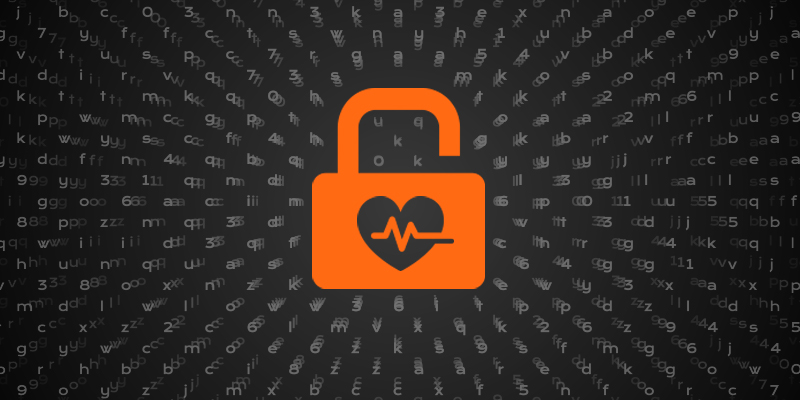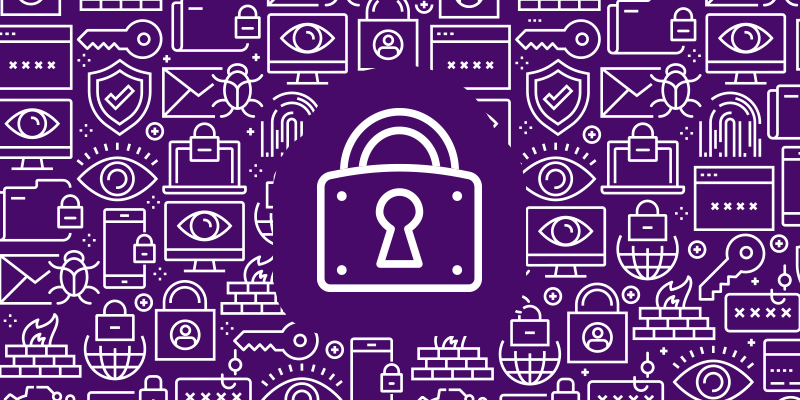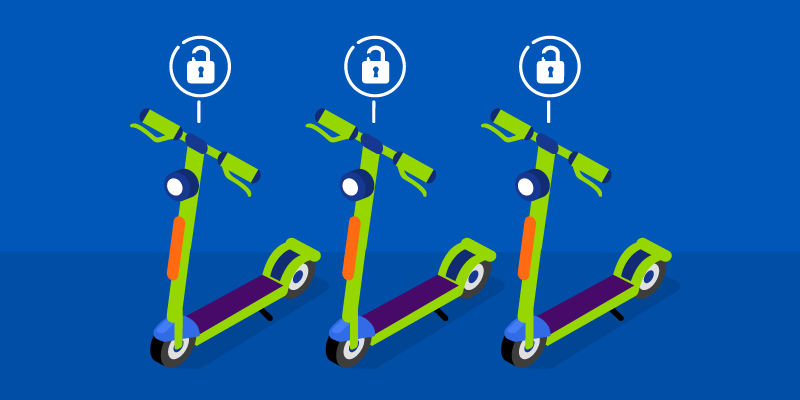
by Justine Kurtz | Oct 31, 2019 | Threat Lab
“Phishing” may have been a relatively obscure term, but pretty much everyone has heard of it by now. In fact, recent statistics indicate a high likelihood that you—or someone you know—have been the victim of a phishing attack at least once.
Now, if you remember the classic Nigerian Prince scams from back in the day, you might be asking yourself how the stats could be so high. After all, it seems pretty unlikely that an otherwise cautious person would fall for something like that, right? And in today’s cyber-climate, where the news is filled with headlines about major hacks and malware infections that spread like wildfire, why would anyone click on links from unknown senders or hand over their sensitive, personal information (think SSNs, etc.) without verifying the authenticity of the request? It turns out, there are a lot of subconscious influences at play, and the thing that makes phishing attacks so successful is the way they take advantage of our trust, curiosity, fear, greed, and even desire to do a good job at work.
Understanding the factors that drive a successful phishing attack is fundamental to preventing them in the future. That’s why Webroot partnered with Dr. Cleotilde Gonzalez, research professor at Carnegie Mellon University, to take a deep dive into the psychology of phishing.
Read our full report, Hook, Line, and Sinker: Why Phishing Attacks Work, for more information on the psychology behind phishing attacks.
Tip #1: Maintain strong, unique passwords. Using individual passwords for each of your accounts will help prevent fraud, identity theft, and other malicious activity. Consider using a secure password manager, and enable two-factor authentication wherever possible.
What kind of person clicks a phishing link, anyway?
The truth? We all do it. While 86% of Americans believe they can distinguish a phishing message from a genuine one, 62% have had their personal information compromised as part of a breach. So what’s the deal here?
“People are generally overconfident about their ability to spot the fakes. Overconfidence is a big problem in many human actions. In this case, this probably happens because the ratio of phishing emails to regular emails feels low, so our mind underestimates the probability of receiving a phishing email, and in turn, overestimates our ability to identify one if we do.” – Cleotilde Gonzalez, Ph. D.
Tip #2: Stay on your toes. The more overconfident and complacent you are about your security, the easier it is for you to be phished. Don’t play into a cybercriminal’s hands. Maintaining a healthy level of suspicion about all links and attachments in messages may make all the difference during an attempted breach.
How are phishers using psychology against us?
By tapping into our own personal sense of urgency, cybercriminals are able to manipulate us in subtle ways that we may not realize until it is too late. Hackers often use cleverly disguised email handles and targeted messaging, known as “spear phishing,” to create a sense of trust and familiarity. This makes links appear more legitimate, and makes us perceive the click as less risky.
“Ultimately, urgency, familiarity, and context have a strong impact on decision making. If you already expect to receive emails from your boss at your office (context and familiarity), and you are accustomed to messages that request quick action (urgency), then you are likely to assume the message is real. It might never occur to you to suspect that it could be phishing.” – Cleotilde Gonzalez, Ph. D.
What are the most convincing ways for a phisher to tap into your sense of urgency to get you to open their email?
- 65% of Americans prioritize emails from their boss
- 54% prioritize emails from family or friends
- 33% prioritize emails to confirm bank transactions
That means you shouldn’t feel weird or guilty for verifying odd requests from bosses, family, or friends. If your boss sends you an email asking for out-of-the-ordinary action, don’t hesitate to call them up and ask them for details. (Do this instead of replying to the email.) Same with links, downloads, and requests for information from family and friends. It never hurts to double-check.
Practicing phishing mindfulness, even when clicking links from seemingly trustworthy sources, cuts down significantly of the efficacy of spear phishing attacks. Pay close attention to sender addresses and handles, as well as signatures. If you get an email from your bank, financial institution, or even a regular website for which you have a login, navigate to their official website independently instead of clicking through on that potentially risky email.
Tip #3: Back everything up and do it regularly. All of your important data and files should be regularly backed up to a secure hard drive or cloud storage. When using a physical hard drive, only connect it while backing up. This will help prevent the drive from being affected by an infection.
Why are we still clicking?
Here’s the thing: 76% of Americans know they have received a phishing email, and yet still 56% of people would feel comfortable clicking on a link or attachment from an unknown source on their personal devices. So why are so many of us still willing to jeopardize our safety for an unknown link?
“Risk and under-weighed probability are linked. Risks sometimes come with rewards, right? So if the risk seems low and the reward seems high, you’ll make riskier decisions. It’s like gambling; our minds explore different gain/loss experiences, then respond with risk-taking or risk-averse actions.” – Cleotilde Gonzalez, Ph. D.
Tip #4: Always keep your software up-to-date. Hackers are known to regularly exploit security holes in outdated software and operating systems. By installing software updates when prompted, you can stop many cybercriminals in their tracks.
What if you’ve been phished? Now what?
With 62% of those surveyed reporting some type of data breach, it’s important to know what to do in the event of a breach that can help keep the damage to a minimum. George Anderson, Product Marketing Director at Webroot, recommends the following steps:
- Change your account passwords immediately! That includes accounts you don’t believe were breached, but are using the same or a similar password.
- Set up alerts with your credit agency.
- Void existing credit cards and order new ones.
- Engage a credit security service.
- Notify law enforcement or the appropriate government agency.
While some of these steps may seem obvious to you, they clearly need to be repeated; of people whose information was stolen or exposed, a baffling 32% didn’t bother to change their account passwords afterward.
Dr. Gonzales shared her thoughts on what can be done to combat this type of complacency.
“These findings illuminate the fact that what we really need here is a mindset makeover,” she says. “The longer-term reward of security needs to be highlighted, front and center, not placed on the backburner. To do that, we’re going to have to shift the way that people think about security and prioritize their responsibilities. We have to allow the time and brain space for security-related considerations.”
What can we all do going forward?
You can nurture the type of security mindset shift Dr. Gonzalez references by taking small steps. First, you know those software and security updates you (like many people) are probably putting off? Just do them. Enable two-factor authentication wherever possible, especially on important online accounts like your banking and credit institution websites.
You may even find that your heightened security practices influence those around you to make stronger choices. After all, seeing a person you know being on top of their game can be very motivating to start making personal changes!
Remember, the most important thing you can do is avoid overconfidence. Don’t underestimate the risk of a phishing attack. Doing that is exactly what will make you a prime target for criminals.
“It’s a classic case of underweighting probabilities, but explicit numbers speak for themselves. Providing this information might help people calibrate the risk and confidence more accurately.” – Cleotilde Gonzalez, Ph. D.

by Kelvin Murray | Oct 29, 2019 | Industry Intel
In my previous blog post, Why Healthcare Organizations are Easy Targets for Cybercrime, I discussed various reasons that hospitals and healthcare organizations make desirable and lucrative targets for hackers. In this second installment, I’ll go over how criminals are attacking these organizations, the methods they use, and also what needs to be done to begin to address this dangerous threat.
Medical Device Compromise
As I mentioned in my first blog on this topic, there is a wide array of connected medical devices in a hospital environment. These devices can be classified into 5 broad categories:
- Consumer wearables, such as sleep pattern monitors, fitness trackers, etc.
- Patient monitoring devices, including insulin pumps, ECG, heart rate monitors etc.
- IVD, blood analyzers, etc.
- Embedded devices, such as pacemakers and implants
- In-house equipment, like medicine dispensing systems, MRI, CT, and X-ray machines, etc.
Devices like these can he hacked in an alarming number of ways. In addition to attacks that could endanger patients’ lives, such as remotely tampering with pacemakers or insulin pumps, these devices may be exploited to enable data theft or to gain access to other hospital infrastructure or systems. In one example from 2017, penetration tester Saurabh Harit managed to compromise a digital pen used for writing prescriptions, which gave him access to a patient database and scans of each prescription.
Learn how can endpoint protection help you secure your business.
Data Breaches
Medical data is a valuable commodity that is openly traded on the dark web. Although hackers and automated malware are often to blame, old-fashioned user error can play a major role in these types of compromises. Phishing remains a preferred method for stealing data and infiltrating networks.
Some examples of stolen medical data include:
- Patient data. Identity and insurance fraud are relatively easy when you have access to the kinds of data medical organizations store about their patients. Additionally, this information can be used to charge expensive medical procedures, claim prescription drugs, or be exploited to breach other organizations outside of the healthcare industry. It can even be used for personal extortion and a host of other crimes.
- Administrative paperwork. Criminals may target medical licenses to forge prescriptions and commit other types of fraud or extortion.
- Prescription information. Criminals may forge prescriptions or drug labels and use them for purposes like fraud and even drug smuggling.
- Biometric data. As biometrics are increasingly used in security measures and law enforcement practices, records of fingerprints, ocular scans, and even heartbeats could be stolen and used for nefarious purposes.
Ransomware
Because the services that medical facilities provide are essential and often cannot be disrupted without serious risk to patients, ransomware is a weapon of choice. Many organizations have no choice but to pay the ransom, and some health facilities have had to shut down permanently due to these attacks.
Medical facilities worldwide have turned patients away, curtailed or suspended services, and even closed as a result of ransomware attacks. The groups that carry out these attacks have typically done recon on their targets to discover exactly how to breach them and which systems to encrypt to cause maximum disruption.
Of course, when we talk about ransomware affecting healthcare organizations, one attack stands out above them all: WannaCry. This nasty threat spread like wildfire across the world in 2017 and crippled many organizations through a combination of lateral wormlike propagation and machine-wrecking encryption. One of the largest and most publicized victims was the U.K.’s National Health Service. The attack “disrupted services across one-third of hospital trusts and around 8% of GP practices,” according to a report published by the NHS a year later. On top of that, ambulance services were affected and over 19,000 appointments were cancelled.
Despite the financial gains to be had when attacking healthcare organizations, WannaCry was actually an example of a cyber-weapon spreading far beyond its intended targets; the attack was not specifically aimed at the NHS or other health orgs affected.
Ultimately, WannaCry really highlighted the poor security practices prevalent in so many healthcare organizations. The NHS fell under a lot of scrutiny in the aftermath of the attack, particularly as Microsoft had issued a Windows® update that would have fixed the exploited vulnerability months before. Since then, the health service has undertaken a number of changes to shore up defenses.
The Stats
According to a survey of industry Chief Information Security Officers (CISOs) by Carbon Black, the state of cybersecurity in healthcare is somewhat bleak, if unsurprising.
- 83% of surveyed healthcare organizations said they’ve seen an increase in cyberattacks over the past year.
- Two-thirds (66%) of surveyed healthcare organizations said cyberattacks have become more sophisticated over the past year.
- With increased adoption of medical and IoT devices, the surface area for healthcare attacks is becoming even larger.
- Limited cybersecurity staffing and stagnant cybersecurity budgets in the industry further compound the issues.
Other reports by security companies Thales and Fortinet paint a similar picture. A recent report in the HIPAA Journal puts data breaches at record levels in 2019.
What Needs to Happen
Healthcare’s poor track record when it comes to updates, patching and obsolete operating systems needs to be addressed—no question. Below are some of the other things that need to happen to improve security all around at hospitals and other healthcare practices.
- All staff members should be trained on security risks and best practices to avoid them.
- Medical device designers need to adopt security as a design principle ASAP.
- Hospitals and other facilities need to better audit and patch their devices, operating systems, applications, firmware, etc. to help eliminate vulnerabilities.
- Government initiatives and coordination are essential, not just for the public facilities they run but also for private practices.
- All healthcare practices should have antivirus and other cybersecurity solutions and should have access to security teams who can investigate any breaches to identify and address vulnerabilities.
- Access to devices, middleware, and APIs should be restricted where possible and secured.
And, finally, the “blame game” culture that pervades healthcare needs to be seen for what it really is: an obstacle to progress. Cybersecurity is a group effort that we should all share. From governing bodies to businesses to individual users, each of us has a role to play in creating a more secure connected world.

by Connor Madsen | Oct 25, 2019 | Threat Lab
MedusaLocker Ransomware Spotted Worldwide
While it’s still unclear how MedusaLocker
is spreading, the victims have been confirmed around the world in just the last
month. By starting with a preparation phase, this variant can ensure that local
networking functionality is active and maintain access to network drives. After
shutting down security software and deleting Shadow Volume copies, it begins
encrypting files while setting up self-preservation tasks.
Bargain Website Server Exposes Customer Data
Several websites used by UK
customers to find bargains have left a database filled with customer data belonging
to nearly 3.5 million users completely unprotected and connected to the
internet. Along with the names and addresses of customers, the database also
included banking details and other sensitive information that could be used to
commit identity fraud. The researchers who initially discovered the breach
notified the site owners, but received no response or any indication the leak would
be resolved until nearly six weeks after the database was left exposed.
Arrests Made Following Major BEC Scam
At least three individuals have been arrested in Spain for
their connection to a business
email compromise (BEC) scam that netted over 10 million euros and affected
12 companies across 10 countries. It appears the operation began in 2016 and involved
the cooperation of multiple law enforcement agencies. By creating a web of fake
companies and bank accounts, the group was able to successfully launder money into
various investments, including real estate, in an attempt to remain undetected.
LA Court System Hacked
The perpetrator of a 2017 spear phishing attack on the LA
court system was sentenced to 145 months in prison following convictions on
charges of wire fraud, unauthorized access to a computer, and identity theft. The
individual was able to compromise employee email accounts and use them to
launch a malspam campaign that distributed over 2 million emails.
Pennsylvania School District Hacked
Multiple students are being questioned after school district
officials noticed unauthorized access to the student assistance site Naviance,
a hack which appears to have been an attempt “to gain a competitive edge in a
high-stakes water gun fight.” Access to the site would have also given them
access to other student’s personal data, though no financial or social security
information is stored on the site. District officials determined the security
practices for the site lacking but have not currently released plans for improvement.

by Kelvin Murray | Oct 24, 2019 | Industry Intel
Certain types of cybercrime targets always make headlines. In this two-part series, we’ll get into a pretty serious one: your health, and why hackers are targeting the healthcare industry for profit.
The Short Answer: Medical Data is Worth a Lot
Stolen medical data is valuable, plain and simple. In a Phishlabs study from 2014, healthcare-related credentials were valued at 10 times the worth of stolen credit card numbers on the dark web. The data for sale typically includes names, birthdays, relevant policy numbers, billing details, and more. Criminals can use this data for anything from identity theft to insurance fraud and more.
The More Complex Answer: There’s a Huge Attack Surface
“An average hospital room will have between 15 and 20 medical devices, and almost all of them will be networked.” – Rick Reid, Aruba Networks
Most hospitals are very large organizations. Even smaller hospitals have hundreds of staff members, while larger institutions, such as my local hospital in Dublin, have over 3,000. The sheer number of patients, visitors, and contractors on site at any one time would give any admin team a challenge to monitor, never mind secure.
Endpoints and Devices are Disparate and Often Unsecured
The variety of connected devices in a given hospital environment also presents a host of security challenges. Modern IoT medical devices, such as wearable monitors, operate on the same network as ancient un-patchable devices which were developed without any security considerations by companies that have since closed. These factors combine to provide plenty of avenues for attackers to infiltrate sensitive systems.
According to Christopher Neal, CISO of Australia’s largest operator of private hospitals, Ramsey Healthcare, unsecured medical devices will continue to be a problem in the industry for years to come. After a security audit of the company, which consists of around 30,000 employees and around 9,500 beds, Neal stated:
“[We found] a lot more equipment with default credentials, default configuration, sitting not on the corporate network but [in] DMZs… Anything you’re buying today has not been built secure-by-design, most likely. This is a problem that’s going to live in healthcare for another 15 to 20 years.”
Even keeping a typical Windows® computer secure is tricky in an environment where updating operating systems is notoriously slow. Hospitals worldwide are clinging onto the less secure Windows® 7 and Windows® XP platforms. Unfortunately, the reluctance to upgrade OS’s brings significant security risks; in our own research, we’ve discovered that systems running Windows 7 and older are at least twice as likely to become infected as those running the newer and more secure Windows® 10 operating system.
Learn how ongoing cybersecurity education and training for end users is a must for businesses to stay secure.
The Operational Structure is Disjointed
Hospitals are complex and sometimes chaotic places. Institutions with a lot of non-elective admissions, especially public hospitals, are usually crowded. A single campus might contain many different hospital organizations, each with its own units, wards, offices, etc. All of these share data between them.
As you might imagine, management structures for such hospitals are very complicated, especially in Europe, where public hospitals are more common than in places like the U.S. Many public health facilities communicate with each other, while, above them, a large national health service coordinates and facilitates data sharing. As a result, planning and implementing security initiatives is often both challenging and slow.
Medical Research is Valuable
Medical institutions are also targeted for the purpose of stealing research. Medical research can take many years and cost millions to develop, but it can be stolen in minutes. Motives for stealing research may vary, but most are financially based. For instance, some attacks may be state-sponsored initiatives to outpace other nations in pharmaceutical research and, thereby, bring new drugs to market before competitors. Others may simply be to hold potentially life-saving research for ransom or sale to the highest bidder.
Hospitals Provide an Essential Service
Delays or disruption at a care facility could seriously impact patient care or even cost lives. Hospitals simply can’t afford the outages, downtime, or general post-breach scrambling that an attack would cause, making them “easy money” for criminals. That’s why, when we hear about attacks on healthcare organizations, they usually involve some kind of ransomware—hospitals often have no choice but to pay the ransoms. Unfortunately, all targets would seem to be fair game, and reports of attacks on cancer support organizations, cardiology units, and children’s hospitals are not out of the ordinary.
The Road Ahead
In his book, Black Box Thinking, Matthew Syed outlines how medicine lags far behind other (similarly complex) industries, such as aviation, when it comes to learning from mistakes and improving safety. Syed asserts that the litigation and shame associated with failures in healthcare has led to a negative culture in an industry that tends to bury bad stories, instead of tackling them head on. The healthcare sector is also legally more culpable for any data breaches and is at greater risk from any resulting costs.But it’s not all bad news. Although the gears of government and healthcare may move more slowly, a lot of security-related changes are happening in the sector. For example, the much-maligned NHS in the U.K. has implemented major changes since the WannaCry attacks of 2017. Wide-ranging investigations were undertaken and costly and far-reaching initiatives were put into practice. In fact, the digital wing of the NHS now offers advice to other state healthcare groups on how to tighten up defenses against this global scourge.
To learn more about how criminals are targeting the healthcare industry, as well as what needs to be done about it, check out the second installment of this blog: Healthcare Cyber Threats That Should Keep You up at Night.

by Charlie Tomeo | Oct 23, 2019 | Business + Partners
Entrepreneur Jim Rohn once said, “Time is more valuable than money. You can get more money, but you cannot get more time.” I think anyone involved in running a business can relate to this statement, but it carries a particularly deep meaning to those of us who deal with cybersecurity.
When it comes to cyberattacks, even the most minor malware infection can create costly delays and downtime, and the damages from data loss or business disruption can be financially devastating. Dealing with the consequences of denial-of-service attacks, ransomware, and data breaches shouldn’t be an accepted part of your agenda.
You need to protect your business first. That means having a strong lineup of cyber-defense tools that don’t just mitigate threats, but actually put time back in your day. The key to success is to stop threats before they stop you. One of the most important pieces of that puzzle is the tools you use, particularly to achieve automation.
Learn more about protecting your business first with ADR and other cyber-defense best practices by checking out our Lockdown Lessons podcast series.
What are EDR, MDR, and ADR, and what’s the difference?
I am the first to admit that the cybersecurity world throws around far too many acronyms, and the definitions are not abundantly clear. (I’m definitely guilty of this, myself.) So let’s break down some of the endpoint-related jargon you may have heard lately.
Endpoint Detection and Response (EDR)
Endpoint detection and response (EDR) technology gathers large volumes of data from endpoints and provides security analysts with large amounts of information to help detect and mitigate cyber threats. These solutions significantly improve endpoint visibility, threat remediation, and can even assist with threat hunting. But to take full advantage, a staff of trained security analysts are necessary––and with today’s skills gap, this model does not make sense for the majority of SMBs and MSPs.
Today, EDR is beginning to morph into “enterprise detection and response.” The endpoint telemetry data it produces forms part of a more holistic approach to network security.
Managed Detection and Response (MDR)
In recent months, cloud-based security service providers have been leveraging EDR data and compensating for the cybersecurity skills gap through managed detection and response (MDR).
Working around the clock, MDR acts as a security analyst by providing automated threat detection, response, and remediation. It protects the entire network––not just endpoints––and provides the time, commitment, and cybersecurity skills necessary to fully detect, mitigate and resolve issues. The unfortunate truth here is that, for many smaller businesses, MDR is just too expensive. They may need to explore different partnership models or leverage managed services from their vendors.
Automated Detection and Response (ADR)
For businesses and managed service providers without dedicated cybersecurity resources and an ample budget, automated detection and response (ADR) may be the perfect answer. When other solutions become overwhelmed by the vast quantity of incoming malware, ADR leverages AI and machine learning to not only stop threats, but also to proactively predict and prevent them. As a result, this type of solution can actually put time back in your day.
As the cybersecurity landscape evolves and the skills gap continues to grow, MSPs and SMBs must onboard solutions that automate their defenses and offer the missing cybersecurity intelligence that only ADR provides.
ADR: the Next-Gen Evolution of Cybersecurity
As you are probably aware, modern attacks continue to increase in complexity, become more targeted, and are often automated at scale. They can also move unpredictably and laterally, as we have seen with Island Hopping (i.e. the act of compromising one company by infiltrating its affiliates, partner network, and/or supply chain.)
I know that many of you experience challenges that can make your business or clients vulnerable to attack, including:
- Broad attack surfaces
- Limited security expertise
- Lax or inadequate access controls
- Data loss, email spam, and phishing vulnerabilities
- Insufficient understanding of compliance
The best way to combat these types of vulnerabilities is to leverage the power in prediction to stop attacks before they happen, and to quickly and automatically remediate threats that do get through. This is where ADR provides a new way to think about cybersecurity.
Currently, your cybersecurity or IT team needs to manage multiple tasks across multiple systems, which requires in-depth knowledge of computer systems and cybersecurity threats. Consequently, response time is often slow. With ADR, tasks are automated, and threats are investigated, validated, and remediated in the background––greatly boosting your operational efficiency and effectiveness.
As the threat environment continues to evolve, you will need to keep pace and ADR changes the security equation by improving the accuracy of detection and speed of response, saving you a lot of time and hassle—not to mention money.

by Connor Madsen | Oct 18, 2019 | Industry Intel
Cryptominers Found in Audio Files
Researchers have recently found that both cryptominers
and backdoors are being deployed within WAV audio files on targeted systems.
Using steganography, attackers can include components for both loading and
executing malicious scripts, while still allowing some audio files to play
normally. Along with the malicious software, Monero cryptominers were launched
simultaneously to begin generating cryptocurrency.
Vermont School District Monitoring Students Online Activity
A Vermont school district recently hired the
cyber-monitoring software company Social
Sentinel track the social media and email accounts of enrolled students.
The purported purpose of the software is to stop problems such as bullying and
self-harm among students by scanning for specific keywords, while supposedly
respecting the privacy of the district’s thousands of students. Unfortunately,
most of the posted alerts are currently being triggered by searches for a
locally-made beer.
Darknet Child Porn Distribution Site Shutdown
Officials in the U.S. and South Korea collaborated to shut down
a darknet
site thought to be the largest distribution site of child porn. More than
300 individuals were arrested in connection with the site. By monitoring new
Bitcoin addresses created when users made an account, the officials were able
to find not only hundreds of users, but also the site’s administrator, who has
since been charged in South Korea. Most alarmingly, amongst the 250,000 videos
found on the server, nearly half were previously unknown to law
enforcement.
Fake Account Reporting Leads to Facebook Lockout
Many Facebook
users have been locked out of their accounts after reporting fake or spam
accounts, some for nearly a week. Following the lockout, users were shown a bugged
verification screen that left users even further from regaining access. Luckily,
Facebook responded to the many requests to reinstate user accounts, resolved
the issue, and fixed the authentication process.
Payment Card Marketplace Re-leaks Stolen Cards
One of the largest online
marketplaces for stolen payment card info has been breached, leading to
nearly 26 million payment cards stolen in prior breaches being reintroduced to
hackers. By accessing the binary data stored in the magnetic strips, hackers were
able to create fake cards and make fraudulent purchases. At least 8 million
unique cards had been uploaded to the marketplace since the start of 2019.

by Justine Kurtz | Oct 17, 2019 | Home + Mobile
In May of 2018, the General
Data Protection Regulation (GDPR) came into effect in the
EU. Seemingly overnight, websites everywhere started throwing pop-ups to inform
us about their use of cookies and our privacy rights. While the presence of the
pop-ups may be reassuring to some (and annoying to others), the real issue is
that very few of these pop-ups give any explanation as to how the cookies are
used or whether they inform marketing decisions. So, before you click “accept”
on that next privacy policy notification, read our primer on all things related
to cookies, pixels, and web traffic trackers.
Check
out the Webroot Community for more tips on how you can manage
these cookies.
What is a Cookie?
Cookies
(aka. HTTP cookies, session cookies, browser cookies, web cookies, or tracking
cookies) are used by almost all websites to keep track of site users’ sessions.
While you might not like the idea that a website is tracking you, cookies actually
provide a very convenient function. Without them, websites you regularly visit wouldn’t
be able to remember you or what content they should serve you. For example, if
you added items to an online shopping cart and then navigated away without
purchasing, that cart would be lost. You’d have to go back and add everything
all over again when you were finally ready to buy. If it weren’t for cookies,
our web experiences would be entirely different (and much more frustrating).
In
cases like the previous example, the use of tracking cookies is pretty benign
and helps smooth the user’s online experience overall. So, if cookies can provide
a beneficial service, why do we need privacy laws like GDPR? The answer is
because of a specific type of cookie, i.e. third-party tracking cookies. These are
created by domains other than the one you are actively visiting. They run
silently in the background, tracking you and your online habits without your notice
and compiling long-term records of your browsing behavior. These are typically used by
advertisers to serve ads “relevant” to the user even as they navigate unrelated
parts of the web.
Who Serves Cookies
and Why?
By far the most prolific servers
of third-party cookies are Google and Facebook. To help businesses target and
track advertisements, both Google and Facebook both suggest embedding a
tracking pixel—which is just a short line of code—into business websites. These
pixels then serve up cookies, which allow the site owner to track individual
user and session information.
The tracking doesn’t stop
there. To optimize their marketing tools for all users, Google and Facebook both
track and store this data in their own databases for processing through their
own algorithms. Even if you’re not currently logged in to Facebook, your
session data can still be tracked by your IP address.
What is People-Based
Targeting?
Google and Facebook’s ad
platforms work incredibly well because they pair cookie data with an existing
bank of user data that most of us have willingly (or unwillingly) given them.
Your Facebook account, Instagram account, Gmail, and Google Chrome accounts are
all linked to larger systems that inform sophisticated advertising networks how
to appeal to you, specifically, as a consumer. This way, websites can serve you
ad content you’re likely to click on, no matter which sites you’re actively
visiting. Combining traditional cookie tracking with these types of in-depth
user profiles is called “people-based targeting” and it’s proven to be an
incredibly powerful marketing tactic.
How to Protect Your Data
The sad truth is that you’ll never fully escape tracking cookies,
and, frankly, you probably wouldn’t want to. As mentioned above, they
streamline your online experiences in a pretty significant way. What you can do
is reduce the breadth of their reach in your digital life. Here are a few key
ways to do that.
- Stay vigilant. Be sure
to read the privacy policies before you accept them. This advice goes beyond
the GDPR-compliant pop-ups that have become so prevalent in the last year. Keep
in mind that tech giants are often interconnected, so it’s important to be
aware of all the privacy policies you’re being asked to accept.
- Clean house. You don’t have to do it often, but clear your cookie cache every once in a while. There are plusses and minuses here; clearing your cache will wipe away any long-term tracking cookies, but it will also wipe out your saved login information. But don’t let that deter you! Despite that sounding like a hassle, you may find your browser performance improves. Exact steps for how to clear your cookies will depend on your browser, but you’ll find plenty of guides online. Don’t forget to clear the cache on your mobile phone as well.
- Use a VPN.
Most
of all, we recommend installing a virtual private network (VPN) on all of your
devices. VPNs wrap your web traffic in a tunnel of encryption, which will
prevent tracking cookies from following you around the web. Make sure you use a
reputable VPN from a trusted source, such as Webroot®
WiFi Security. A number of the supposedly
free
VPN options may just sell your data to the highest bidder themselves.
Cookie tracking and digital ad delivery are growing more
sophisticated every day. Check back here for the latest on how these
technologies are evolving, and how you can prepare yourself and your family to
stay ahead.

by Connor Madsen | Oct 11, 2019 | Industry Intel
E-Scooter Security Vulnerability
A security researcher recently found an API vulnerability
within the software of Voi
e-scooters that allowed him to add over $100,000 in ride credits to his
account. The vulnerability stems from a lack of authentication after creating
an account which allows users to enter an unlimited number of promo codes offering
ride discounts through several of the service’s partners. The writeup of steps
to replicate flaw was temporarily taken down by the researcher until the
company resolves the issue.
MageCart Strikes Volusion Sites
Thousands of sites using Volusion
software have been affected by malicious MageCart scripts going back to
mid-September. The scripts have been running from a non-descript API bucket and
are using filenames that would appear benign to most security software and site
admins. While victims will likely begin monitoring for stolen payment card
data, it is still unclear how many sites have been compromised in total.
Brazilian Database for Sale
A database containing extremely sensitive information belonging
to more than 92 million Brazilian
citizens was found up for auction on several marketplaces on the dark web. Included
in a sample of the data were driver’s license numbers and taxation info for the
93 million Brazilians currently employed within the country. Unfortunately for
those involved, Brazil’s recently introduced data protection law won’t be in
effect until halfway through next year.
Twitter 2FA Leak
Twitter
announced earlier this week that many email addresses and phone numbers customers
were using for two-factor authentication had been provided to third-parties for
use in targeted advertisements. The company is still working to determine how
many users are involved in this apparently unintentional misuse of their
sensitive information. Twitter has fixed the main issue, though they still
require a phone number for 2FA regardless of the method used to verify the
account.
New Zealand Health Organization Hacked
Following a cyber
attack in August of this year, officials discovered evidence of multiple
intrusions into their systems going back nearly three years. The health organization
has been working with law enforcement to determine the extent of the
unauthorized access, as well as attempting to contact all affected individuals.

by LeVar Battle | Oct 10, 2019 | Home + Mobile
Online games aren’t new. Consumers have been playing them since as early as 1960. However, the market is evolving—games that used to require the computing power of dedicated desktops can now be powered by smartphones, and online gaming participation has skyrocketed. This unfortunately means that the dangers of online gaming have evolved as well. We’ve examined the top threats that parents need to know about to keep their kids safe while gaming online.
Check out our Antivirus protection for PC gaming without impact on your gameplay.
Online Bullying and
Harassment
A recent study shows that 65%
of players who participate in online gaming have been harassed; a statistic
that does not bode well for underage gamers. Your first instinct may be to try
to prevent your child from participating in online gaming altogether, but this
may cause them to sneak playing time without your knowledge. A stronger choice
would be to talk with your kids and prepare them for the types of negative
behavior they may experience online, and to make sure they know they can come
to you if they are being harassed. It’s also important to explain the impact
that online bullying can have on others, and to set firm consequences if you
catch your child participating in harassment or abusive language. Regulating
the use of headsets can help prevent both your child’s exposure to and
participation in online harassment.
Two types of harassment specific to online experiences go a
step beyond what you would expect from online bullying: doxxing and swatting.
Doxxing is when one or more online participants seek personal, identifying
information on a particular user for blackmail or intimidation purposes.
Doxxing can often lead to the release of real names, phone numbers, home
addresses, employer information, and more. Swatting is a form of harassment
that uses doxxing techniques to create an actual, tangible threat. A harasser
will call in a threat to a doxxed user’s local law enforcement, often claiming
there is a kidnapping or hostage situation at the victim’s address. This may bring
a large SWAT response unit to descend upon the address.
Keeping an open line of communication about your kid’s gaming experiences is critical. Swatting can happen over seemingly innocuous events. One of the most notorious examples followed a dispute over a $1.50 bet in “Call of Duty: WWII.”
Pro tip: one is only vulnerable to doxxing and swatting if a harasser can link identifying information back to the targeted gamer. Educating your kids on digital privacy best practices is one of the strongest security measures you can take against these forms of online harassment.
Viruses and Malware
As with almost every digital experience, you’ll find
specific cybersecurity threats associated with the online gaming landscape. We
asked Tyler Moffitt, Webroot security analyst, for his thoughts on the malware
threats associated with online gaming.
“The thing kids should really watch out for with games is
the temptation to cheat,” explains Moffit. “In popular games like Fortnite and
PUBG, ‘aimbots’ are very common, as they allow the player to get
headshots they normally wouldn’t be able to make. However, many of the aimbots
that kids download from forums are packed with malware—usually ransomware or info-stealing Trojans. What’s
worse: a lot of young gamers also don’t run antivirus because they think it
will make the game slower.”
The bottom line: cheating at online games isn’t just
ethically icky, it makes you a proven target for hackers. Make sure your kids
know the real cost of “free” cheats.
Phishing Scams and
Account Takeovers
Where there’s money, there are scammers.
With more than 1 billion gamers
actively spending money not just on games, but in games, it’s no
surprise that phishing scams have become commonplace in gaming communities. One
of the most prevalent phishing tactics in gaming: account takeovers are often
prompted by a risky link click on a gaming forum, or a compromised account
sending out phishing links to other users. Once the hacker has control of the
account, they can run up fraudulent charges to any attached credit cards or, in
some cases, sell the compromised account (particularly if it contains valuable
items or character skins). Young gamers are especially at risk for these hacks.
In these cases, chances are that any credit cards attached to gaming accounts belong
to you, not your kids, so young gamers aren’t going to notice who’s spending
your hard-earned funds.
Keeping Your Kids
Safe
You’ll find plenty of tools to help your kids stay secure
while gaming. Reliable antivirus software installed and up-to-date on
all of your household smart devices can protect your family from malicious
software. Additionally, wrapping your household web traffic in the secure
encryption of a trusted VPN could reduce doxxing potential.
But your kids will only find true security through digital literacy. Start
conversations with them not just about online bullying, but about recognizing
cybersecurity threats and phishing scams. If you’re having a hard time
connecting with them over the threat, remind them that it’s not just your
wallet on the line. Account takeovers are now all too common, and no kid wants
to see their Fortnite skins sold for a stranger’s profit. Also, always be sure
to exercise caution in giving out information on the internet. Even small,
seemingly irrelevant pieces of information could be used to pull up Facebook or
other user account pages to grab even more personal data.
To keep your kids educated about online gaming risks, it’s
important to educate yourself as well. Have a question we didn’t cover here?
Ask the Webroot
community.

by George Anderson | Oct 9, 2019 | Threat Lab
First and foremost, endpoint protection must be effective. Short of that, MSPs won’t succeed in protecting their clients and, more than likely, won’t remain in business for very long. But beyond the general ability to stop threats and protect users, which characteristics of an endpoint solution best set its administrators for success?
Get the 2019 PassMark Report: See how 9 endpoint protection products perform against 15 efficiency benchmarks.
Consider the world of the MSP: margins can be thin, competition tight, and time quite literally money. Any additional time spent managing endpoint security, beyond installing and overseeing it, is time not spent on other key business areas. Performance issues stemming from excess CPU or memory usage can invite added support tickets, which require more time and attention from MSPs.
So, even when an endpoint solution is effective the majority of the time (a tall order in its own right), other factors can still raise the total cost of ownership for MSPs. Here are some metrics to consider when evaluating endpoint solutions, and how they can contribute to the overall health of a business.
1. Installation Time
We’ve written recently about the trauma “rip and replace” can cause MSPs. It often means significant after-hours work uninstalling and reinstalling one endpoint solution in favor of another. While MSPs can’t do much about the uninstall time of the product they’ve chosen to abandon, shopping around for a replacement with a speedy install time will drastically reduce the time it takes to make the switch.
Quick installs often also make a good impression on clients, too, who are likely having their first experience with the new software. Finally, it helps if the endpoint solution doesn’t conflict with other AVs.
2. Installation Size
Few things are more annoying to users and admins than bulky, cumbersome endpoint protection, even when it’s effective. But cybersecurity is an arms race, and new threats often require new features and capabilities.
So if an endpoint solution is still storing known-bad signatures on the device itself, this can quickly lead to bloated agent with an adverse effect on overall device performance. Cloud-based solutions, on the other hand, tend to be lighter on the device and less noticeable to users.
3. CPU Usage During a Scan
Many of us will remember the early days of antivirus scans when considering this stat. Pioneering AVs tended to render their host devices nearly useless when scanning for viruses and, unfortunately, some are still close to doing so today.
Some endpoint solutions are able to scan for viruses silently in the background, while others commandeer almost 100 percent of a device’s CPU to hunt for viruses. This can lead to excruciatingly slow performance and even to devices overheating. With such high CPU demand, scans must often be scheduled for off-hours to limit the productivity hit they induce.
4. Memory Usage During a Scheduled Scan
Similar to CPU use during a scan, RAM use during a scheduled scan can have a significant effect on device performance, which in turn has a bearing on client satisfaction. Again older, so-called legacy antiviruses will hog significantly more RAM during a scheduled scan than their next-gen predecessors.
While under 100 MB is generally a low amount of RAM for a scheduled scan, some solutions on the market today can require over 700 MB to perform the function. To keep memory use from quickly becoming an issue on the endpoints you manage, ensure your chosen AV falls on the low end of the RAM use spectrum.
5. Browse Time
So many of today’s threats target your clients by way of their internet browsers. So it’s essential that endpoint security solutions are able to spot viruses and other malware before it’s downloaded from the web. This can lead to slower browsing and frustrate users into logging support tickets. It’s typically measured as an average of the time a web browser loads a given site, with variables like network connection speed controlled for.
Effectiveness is essential, but it’s far from the only relevant metric when evaluating new endpoint security. Consider all the above factors to ensure you and your clients get the highest possible level of satisfaction from your chosen solution.














